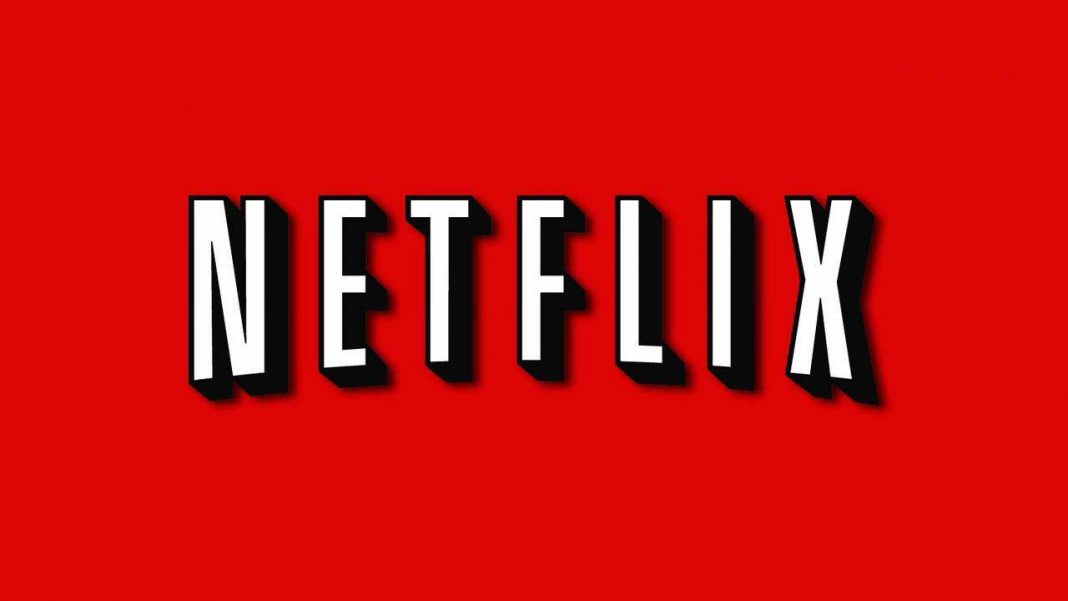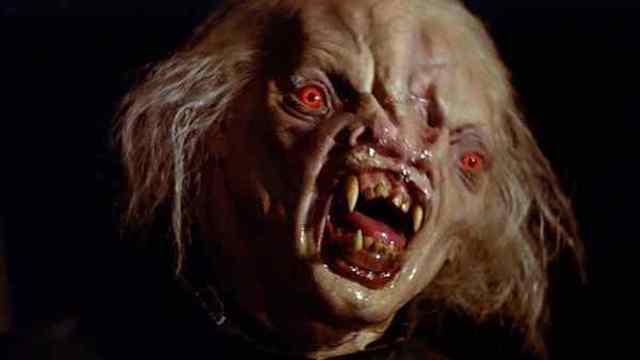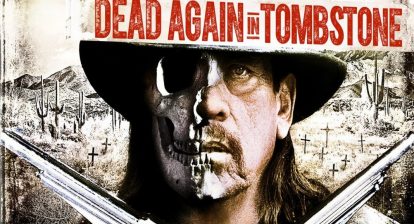With his latest movie, Malum, indie filmmaker Anthony DiBlasi returns to the world he first established in 2014’s fan favorite shocker Last Shift. This time around, DiBlasi has a larger scope, which gives him more room to delve deeper into the cult at the heart of the movie, its eponymous leader, and the rookie police officer who finds herself on a hellish descent after following in her father’s footsteps. As Jessica, British actor Jessica Sula imbues the character with grit, determination, and a perfectly calibrated vein of pure terror. After impressing in supporting roles in the likes of Split, Sula, whom audiences on the other side of the pond will recognize from the hit cult show Skins, finally gets to show off what she can really do with a meaty role that requires the actor to spend much of her time onscreen completely alone.
Did You Know? Wicked Horror TV Has Classic and Independent Horror Films Available to Stream for Free!
Wicked Horror caught up with DiBlasi and Sula ahead of Malum’s theatrical release on March 31 to talk reboots, the trouble with playing cops, and lots more.
WICKED HORROR: Anthony, I’m going to start with you. Why did you want to remake this movie in the first place? Did you feel like there was more story to tell, that you didn’t get it quite right the first time, what was the draw there? Because it’s quite an unorthodox thing for a filmmaker to do.
ANTHONY DIBLASI: It is, for sure. When the Welcome Villain team, they kind of approached me and were like… In our earlier conversations, they asked me “What do you think about revisiting the Last Shift world?” and you know, for me, believe me, I was totally happy with that first movie. It did everything I wanted it to do. We made that movie for a very small budget, and I think the one thing that I was always a little disappointed with, with the first movie, was the reach it had. ‘Cause I felt like I made a real crowd-pleaser and it didn’t really, at least in the States anyway, I’m not sure how it played internationally ‘cause I’m not there, but in the States I felt like I made a movie that played really well in a theater with an audience and it didn’t do that and never got to have that moment. So that was always part of the intrigue with this movie. Make a film for a larger budget, exploring the things we had to leave on the table with the first film, while also reinventing some stuff that I wanted to explore, with the cult and things like that, and then also just putting it in a theater so people could watch it the way the first one was meant to be done. Those were really the things that drew me to this, like let’s do it again but do it bigger, and in a venue that people can really enjoy it.
WICKED HORROR: Did you have any hesitations about revisiting it?
ANTHONY DIBLASI: For sure, yeah. ‘Cause I think when Scott [Poiley, co-screenwriter] and I started writing the treatment, you know, it built over time. The first treatment was basically this vomit of like “Here’s six pages of what this movie could be – it’s like the first movie.” And then the next one was, like, ten pages. But then the more we started writing the treatment, the world just started to build itself in our minds. This backstory started to get built and I started to get excited about it and by the time we were writing the script, I never felt like – I was never looking back at the first movie being like “Okay I gotta do this” or reading that first script. By the time we were writing it, it just became a different movie to me. And through the entire process, I never felt like I was remaking a movie, which I was grateful for, because that’s the first fear. Number one it’s like okay, we have to make a better movie, but then number two is, am I going to feel like I’ve done this all before. And I never felt that way on set, or through the process, it always felt like we were doing something new. Obviously, we had new actors on the film.
JESSICA SULA: Yeah, that was kind of nice, it did feel like it was a new film.
ANTHONY DIBLASI: She didn’t ask you a question yet!
WICKED HORROR: I was going to!
JESSICA SULA: [to Anthony] Shut up! Well, unfortunately for me, I’m a cool person who likes to engage in conversation!
ANTHONY DIBLASI: [laughs]
WICKED HORROR: Well, I was going to ask you if you were aware of Last Shift before taking on this role?
JESSICA SULA: No, but actually it’s interesting because a couple of my friends, when they found out I was doing this, and they saw Anthony’s name – or when they saw Last Shift, rather, and then the name changed to Malum – they were like “Oh my god, Last Shift, I know that.” It has a whole cult following. I researched it when the meeting was scheduled to chat and saw that – I think that did actually make me a little more daunted to take it, because I was like, this seems to have a following and people seem to be really faithful to it. And it has been funny to see the trailer drop and my dad was like oh there have been a few comments – I don’t like to read the comments – where people are saying “My man took the movie and put the name of the previous movie and does he know that it’s already been made and he’s taking credit for it?” And it’s like yes, he does know, it’s him.
ANTHONY DIBLASI: It’s him, it’s him! [laughs]
JESSICA SULA: So, I was a little bit daunted by it, but also Anthony told me not to watch it, so I kind of just treated it as a whole separate thing.
ANTHONY DIBLASI: She still hasn’t watched it.
JESSICA SULA: I haven’t seen it. And I shan’t. I’ll be scared! I’ll watch it in the dark!
See Also: Exclusive Interview: Anthony DiBlasi Talks Last Shift
WICKED HORROR: Did you have any hesitation about playing a cop, especially considering everything that’s going on in the States right now?
JESSICA SULA: Yeah, and that just is so… The more I think about it, you know, we understand, but it also just feels like such bulls***t because the whole point sometimes of a movie is, it does reflect your time, and I understand that, but it also is a way for you to escape societally, like, what is going on. And horror, especially, is something that I feel that you go in and see just to get the scares out in there, in a controlled environment, for a second. And I feel I’ve had a couple of conversations where’s it like, well, you know, you’re someone of color and you’re taking on this role as a cop and I just had to put it as plainly as; I wanted to have a go at this role, ‘cause aside from being a police officer everything else around it seemed fun and interesting to do, and I wanted to work, you know?
WICKED HORROR: Totally, simple as.
JESSICA SULA: I’m sorry, but that’s really it. At that point, I just didn’t even think about that.
ANTHONY DIBLASI: The police thing, and I think honestly –
JESSICA SULA: I think we talked about it?
ANTHONY DIBLASI: We talked about it, yeah, the first movie was made already, right? So, we were taking the core of, like, okay well we’ve explored this with the officer. And I had talked to the Welcome Villain guys because I had a very bad experience with the police in Florida, when I made Missionary, and that was pre-Last Shift, and then on Last Shift, we had police work on that film [with us]. It was interesting to learn the culture during the training with the police in Florida. Again, like, the guys worked on the movie, but I learned some interesting facts that I never… that I’ll always carry with me, like why is there a certain amount of brutality in America with officers? Well, you see it in the training, it’s like well, you shoot to stop. They say, well, they’re not shooting to kill, they’re shooting to stop, and I’m like well that’s kind of worse [laughs].
WICKED HORROR: It is, it is.
ANTHONY DIBLASI: Early on, I talked to the Welcome Villain guys, and I told them I feel like we’re revisiting this movie, I need to touch on it, a little bit, but they were also like not too much, because we want this to be a movie that people just enjoy and can kind of get into.
JESSICA SULA: You told me also, and it’s true, she wants to be a police officer because she wants to find out for herself what happened to her father, so that was my main throughline.
ANTHONY DIBLASI: It’s all character driven.
JESSICA SULA: Right, I just wanted to be in this one place, where he was. How can I get there? If I go through this, well if I go through these steps of training, I’ll also start to understand my father a little bit more too so that was really as far as I planned it because at a certain point you can’t do anything else but that.
ANTHONY DIBLASI: It was all character because, again, we had some great police work on this movie, to do training with Jess and stuff like that but to me it was about the character, and the things that do touch on it in the film… It always had to be through her lens. Like, if I’m touching on it, how is it affecting the character? What are people saying to her when she’s in these scenes?
JESSICA SULA: Yeah.
WICKED HORROR: It’s not exactly pro-cop anyway. I wouldn’t say it’s ACAB, but it’s not pro-cop either.
JESSICA SULA: And I feel like that is where I, personally, wanted the movie to live. I just wanted it to go forward and… be.
Catch Malum in theaters from March 31, 2023






